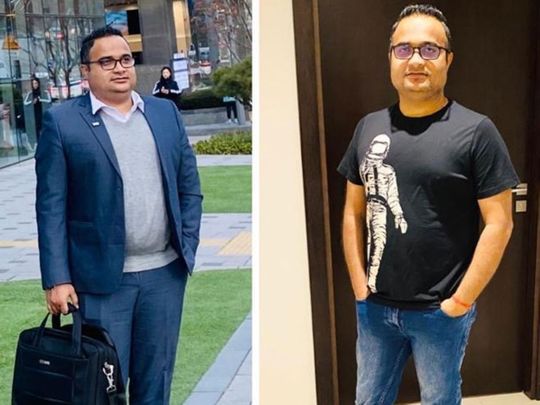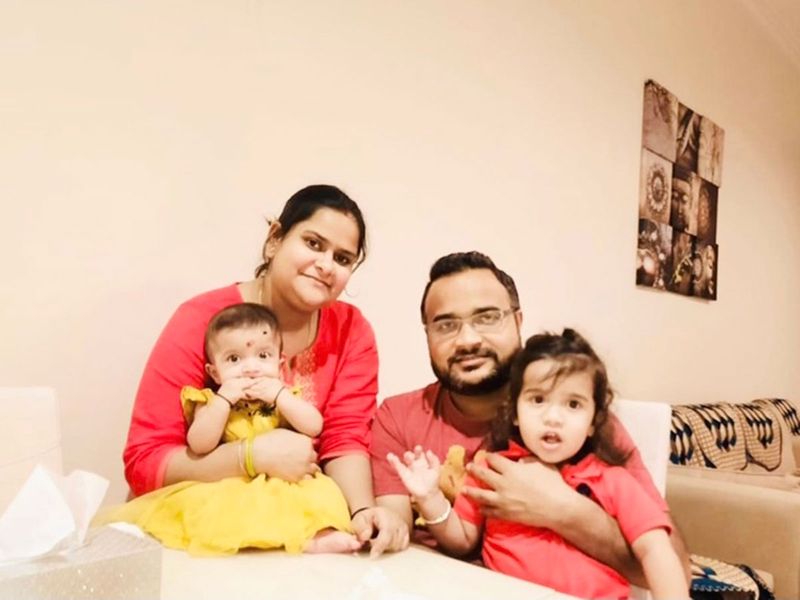
Encounters with truth can be devastating. For Indian expat Prem Mishra, reality came in short, harsh bursts. First came the realisation that he was not being able to run about and play with his two-year-old son; his stamina was shot. Next, when he saw photos of himself from a few years ago and compared them to what he looked like, he felt his face turn red. “I was ashamed,” the 37-year-old business head of a UAE-based company told Gulf News in an interview.
It was June. International travel, something his job requires a lot of, had been stalled for a while owing to the COVID-19 situation. It gave him time and impetus to start on his fitness journey.
See more
- UAE: I was hired on a temporary contract, what are my rights?
- UAE: Left your car unwashed for ages? It could get confiscated
- UAE: I waited for six months to join a company, but was fired. What are my rights?
- Reminder: Renew your Emirates ID before October 11 if it expired during COVID-19 restrictions
Mishra, who describes himself as a foodie, thought long and hard about what to do. “For three-four days I did research on which diet I should follow. I didn’t go the gym because it wasn’t safe. Without doing workout, a diet would not help me. Then I decided I should do something that is difficult to do – that’s the only way to reduce weight.”
For the self-confessed samosa-addict who found it difficult to control portion sizes there seemed only one way – to fast, to literally stop eating.
But before following through on his tough plan, he consulted a dietician and doctor. [He stresses the need to speak to professionals before undertaking any drastic steps.] “I asked her [the doctor] about doing 36-hour fasting. She said, ‘you can do this kind of diet but it should not be for a long duration; 2 or three months is the maximum’,” he recalled. And so, deadline in mind, he began.
Mishra explained the no-food “diet plan”. He said: “For example, today I’ll finish my dinner before 8 o’clock. Next day, I’ll eat nothing. [Then], the following day I’ll have breakfast. So 36-hour gap, in that gap I’ll be having coffees and teas, without sugar, without milk.

“I’m supposed to consume certain amount of calories, that too I was trying to avoid or reduce it,” he added. What this translated into was instead of the 2,000 calories he was recommended on a non-fasting day, his consumption would be limited to 1,200-1,400 calories.
During his 36-hour fast, Mishra was advised to eat 500 calories, whether through a small meal or soup or salad. He cut this down to about 200 calories. “I was eating 100-200 calories in the form of 1-2 idlis (steamed rice cake), or besan chilla (gram flour pancake), or uttapam (pancake made with fermented rice), oats, low in carbs but filling and gives you good amount of energy [after 24 hours of complete fasting]. I was just calculating and keeping an eye on the calories I was eating,” he recalls.
The next morning, he would eat a heavy, but low on carb meal for breakfast.
This wasn’t easy – not by a long shot. “[In the first week [I had] mood swings, headaches, irritation. But then I was trying to control myself…because any food smell, any one eating anything in my office – I felt like slapping them. It was difficult to control that [urge to lash out], to be honest,” he said.
But as his energy levels began to rise and his annoyance to ebb, he began to see positive changes. “I could run around with my son and play with him,” he explained. And this was enough to keep him motivated.
For the first month Mishra did this version of a 36-hour fast. The next month he did 36-hour fasts twice a week. And then, in the third month he did 24-hour fasts 3 times in a week. Now, he’s on 24-hour fasts twice in a week. He does admit that he’s still a foodie; his is a five-day fast week. Weekends, says Mishra, he eats what he wants, when he wants it.
These diet curbs alongside a 6-day exercise regimen that includes walking and yoga have left him 16kg lighter in about 100 days. “Early morning, I wake up at 5.30. [By] 5.45-6pm I’m on the street. I walk around Karama for about 50 mins,” he explained. Once home he does some yoga and stretches. “That’s it,” he said. He reiterated that without exercise, a diet cannot help.
Today, he’s about 5kg away from his goal weight.
“My goal is to be 78-79. And maintain it,” he said.
It may have been a tough walk down the fitness path but it’s a journey Mishra now cherishes. Even though the shock that led him to better health was harsh, it’s still a fact – it’s always truth that will set you free.


